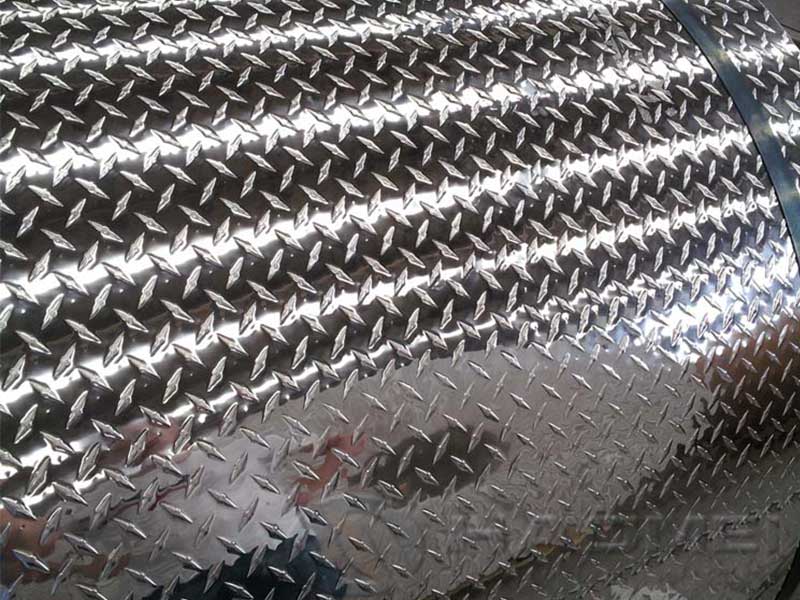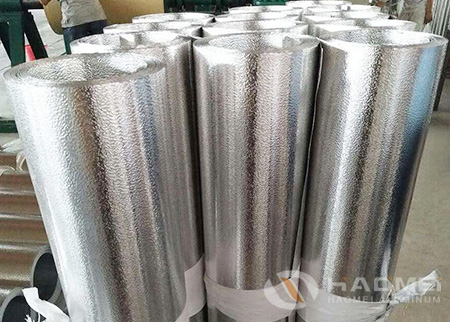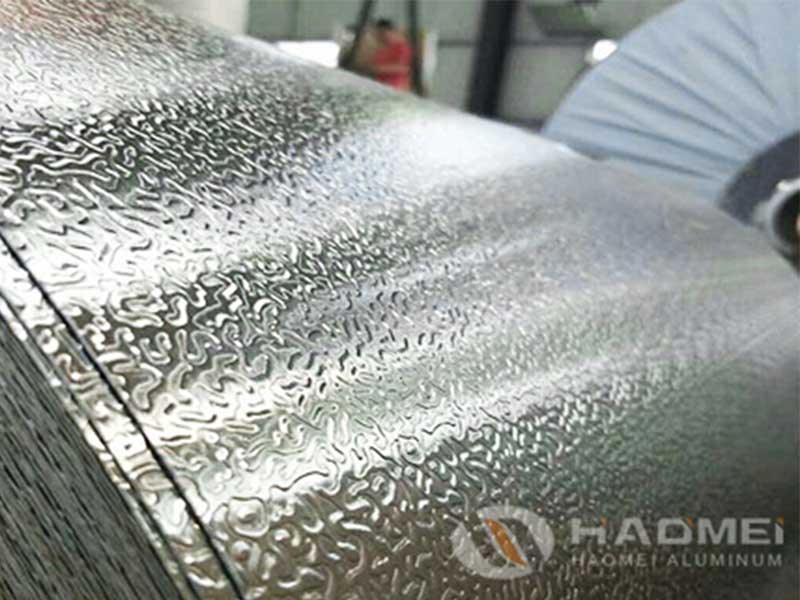Aluminum tread plate 0.3mm 0.4mm 0.5mm Thickness 1100 1050
Aluminum tread plate, also known as aluminum chequered plate or diamond plate, is a lightweight, durable metal sheet stamped or rolled with distinctive patterns like raised diamonds or lines, providing enhanced grip and high aesthetic appeal.
Aluminum tread plates are primarily manufactured through rolling with patterned dies that impress ridges on the surface, serving functional and decorative purposes. The 0.3 - 0.5 mm thickness range positions these plates in a cost-effective, ultra-light category ideal for applications where weight saving and surface protection are essential yet heavy mechanical loads are minimal.
| Property | Description |
|---|---|
| Thickness | 0.3mm, 0.4mm, 0.5mm |
| Alloy Grades | 1100, 1050 |
| Temper | H14, H24, or as per customer need |
| Surface Pattern | Raised diamond, line, or customized |
| Reflectivity | Bright finish available |
| Standard Widths | Usually 1000mm, 1200mm |
| Standard Length | Usually 2000mm, 2440mm |
Chemical Composition of Alloy 1100 and 1050
Both grades 1100 and 1050 belong to 1xxx series with aluminum purity ≥99%. The slight difference lies in guaranteed minimum aluminum content and impurity limits:
Working with aluminum tread plate in these thinner gauges (0.3mm, 0.4mm, and 0.5mm) of 1100 and 1050 alloys presents unique challenges. The 1100 series, being pure aluminum, is incredibly soft and readily susceptible to scratching and denting during processing and handling. We have to be extra cautious with our tooling and stacking procedures to avoid damage. The 0.3mm thickness, in particular, is almost like working with heavy-duty aluminum foil; it’s incredibly delicate and requires specialized handling equipment, including modified rollers and gentler press settings. Any imperfection in the surface becomes amplified during the embossing process, resulting in inconsistent tread patterns. We've experimented with different lubricants and roller pressures to mitigate this, but achieving consistent quality at this thinness remains a constant fine-tuning exercise.
The 1050 alloy offers slightly better strength, but still necessitates careful handling at these thicknesses. While it's more resistant to deformation than the 1100, it still requires precision during cutting and forming operations to avoid tearing or stretching. We've seen a noticeable increase in scrap rates when working with these thinner gauges compared to our standard 1.0mm+ products. This directly impacts our production efficiency and material costs. Furthermore, the thinner the material, the more crucial the consistency of the aluminum coil itself becomes. Variations
| Element | Aluminum 1100 (%) | Aluminum 1050 (%) |
|---|---|---|
| Aluminum (Al) | 99.0 min | 99.5 min |
| Copper (Cu) | ≤ 0.05 | ≤ 0.05 |
| Iron (Fe) | ≤ 0.95 | ≤ 0.40 |
| Silicon (Si) | ≤ 0.95 | ≤ 0.25 |
| Manganese (Mn) | ≤ 0.05 | ≤ 0.05 |
| Zinc (Zn) | ≤ 0.10 | ≤ 0.10 |
| Titanium (Ti) | ≤ 0.03 | ≤ 0.03 |
| Other | Each ≤ 0.03 | Each ≤ 0.03 |
| Others Total | ≤ 0.15 | ≤ 0.15 |
Features
1. Superior Corrosion Resistance
Due to the high aluminum purity (>99%), both 1100 and 1050 grades display excellent resistance to oxidation and various atmospheric agents. This makes them suitable for both indoor and moderately humid outdoor environments.
2. High Malleability & Flexibility
Thin thickness down to 0.3mm allows easy shaping, cutting, and forming without fracturing. These plates are highly workable in both cold and warm environments owing to their soft temper qualities (H14 or H24).
3. Lightweight & Cost-effective
Compared to stainless steel and thicker metal plating, these aluminum tread plates offer similar abrasion resistance yet with considerably reduced weight and valuable cost savings across projects.
4. Anti-Slip Surface
Raised tread patterns improve safety when used for flooring, stair covers, and platforms. This combined with aluminum's natural corrosion resistance reduces risk prolonging useful life.
5. Good Thermal & Electrical Conductivity
Though ultra-thin, alloy 1100 and 1050 still provide decent thermal energy and electrical conductivity for applications involving heat or electrical dissipation where contact points are lightly conductive metal.
Detailed Physical & Mechanical Properties
| Property | Alloy 1100 / 1050 (Typical) |
|---|---|
| Density (g/cm³) | 2.70 |
| Tensile Strength (MPa) | 90 - 130 (varies with temper) |
| Yield Strength (MPa) | 40 - 70 |
| Elongation (%) | 10 - 40 |
| Thermal Conductivity (W/m.K) | 220 - 230 |
| Electrical Conductivity (% IACS) | 50 - 60% |
Common Applications
OEM Components and Panels
The tape-thin ottominate nature of these aluminum tread plates makes them a popular choice as cladding panels for thin-scale enclosures, electronic casings, or decorative facades offering rugged aesthetics.
Floor and Wall Coverings
Where thickness needs reduction for space management without compromising anti-slip requirements — especially in aircraft, buses, maritime ships, and light transport vehicles, these sheets perform perfectly.
Protective Covers & Skins
Modules or machinery electronic housing called for layering cheap, heat-deflecting, and easily fabricated metal skins are good candidates.
Control Cabinet Covers
The sheets serve well to reinforce vented, rust/plaque-proof shield on electrical panel and switchboard covers while showing commercial elegance.
DIY and Craft Works
Home renovators or smart-handyman desire panels for multipurpose home tool renovation due to easy handling and cost-efficiency.
https://www.al-alloy.com/a/aluminum-tread-plate-03mm-04mm-05mm-thickness-1100-1050.html




